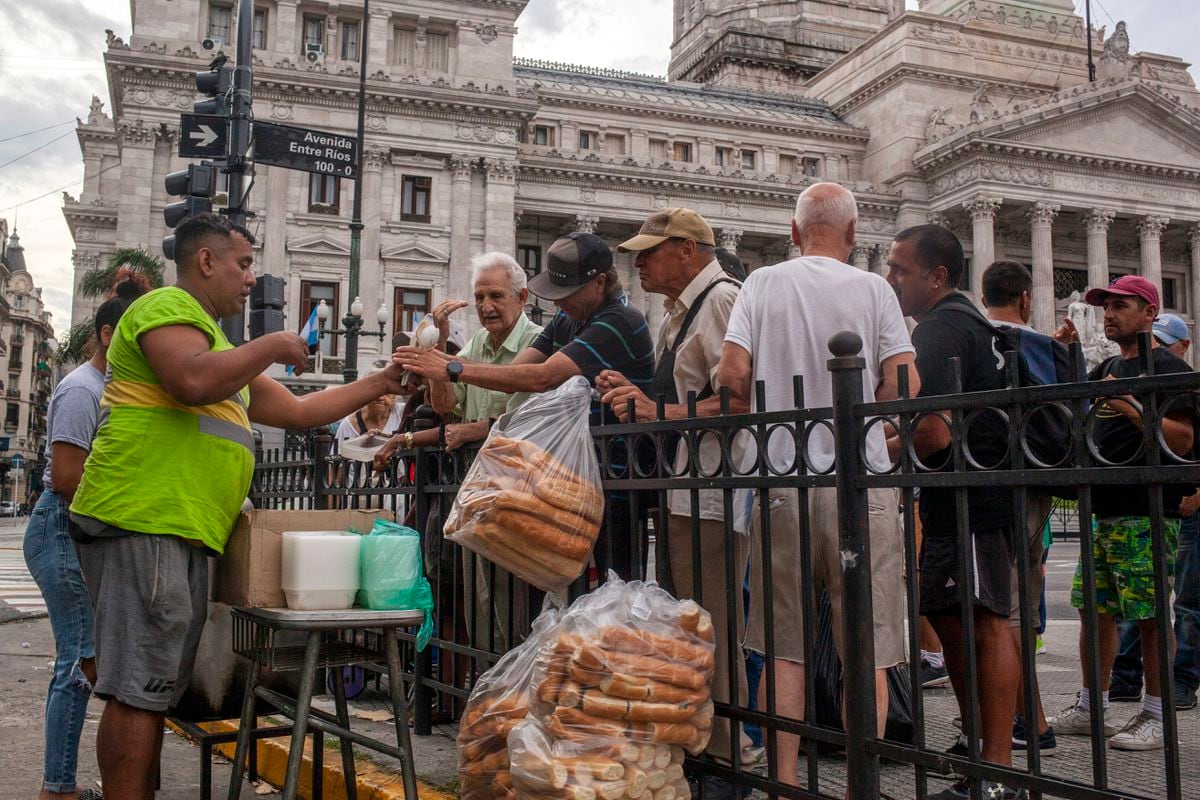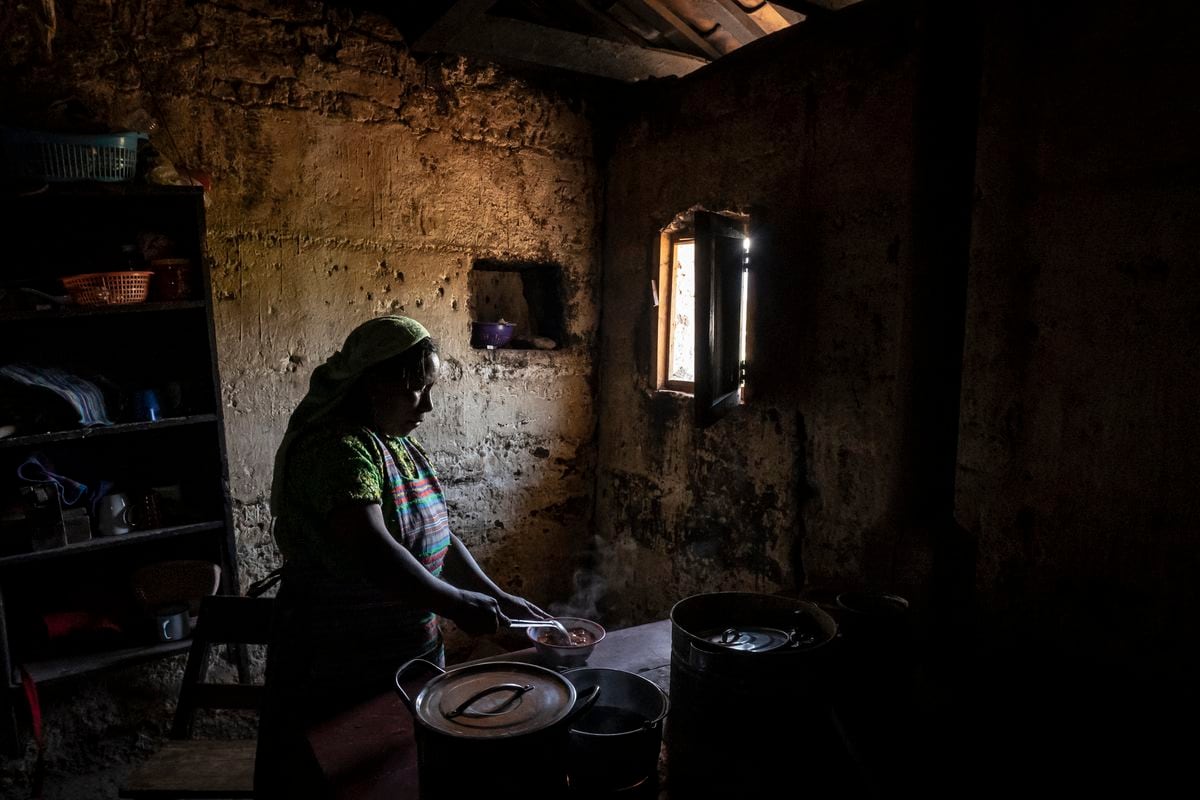Note to readers:
EL PAÍS offers an open section on Future Planet dedicated to reporting daily on the progress of developing countries, the 2030 Agenda, the eradication of poverty and global inequality.
If you want to support our journalism,
subscribe here.
Today,
International Migrants Day
, it
is necessary to tell the story of Juliana, of many
Julianas, of
those who make up the new face of migration in Latin America and the Caribbean.
One, is 13 years old and fled from the violence of a country in northern Central America and came to Belize to seek refuge.
She does not speak English and despite having been accepted to school, schools closed due to covid-19 and she is at home without access to education.
Another
Juliana
, 23 years old and mother of two children, four and two years old, walks alone with them on the roads of Colombia, trying to reach the capital from the border with Venezuela, from where she fled seeking to survive.
The third and last, a 34-year-old Haitian, emigrated to Chile three years ago;
She got a job as a translator and is able to send money to her family every month.
This is the face of migration in the region: diverse, complex, affecting some more than others, but also with positive stories about the contributions of migrants and refugees to the host society.
Stories similar to those of other regions of the world.
What, then, is special about current migration in Latin America and the Caribbean?
The speed and high number of migrants have imposed challenges on the countries of transit and host for which they were not prepared and have turned this challenge into an issue of public policy of the first order.
A new caravan of Hondurans heads to the United States after the passage of hurricanes Eta and Iota
The shipwrecks deepen the drama of the Venezuelan rafters: "People are escaping"
Who will pay for this crisis in Latin America?
Let's review some figures: 10 Caribbean countries are among the top 20 in the world with the highest percentage of their population as immigrants.
In Belize, 15% of its population is immigrant, coming mainly from El Salvador, Guatemala and Honduras.
About 8% of Chile's population has migrated from countries in the region.
Today, in Lima, 10% of its population is foreign, which was unthinkable a few years ago.
But it is four years ago, when the political and economic crisis in Venezuela triggered the most complex mass emigration in the history of the continent, that the eyes of the international community begin to settle on the region around this issue.
To date, and according to the UN's R4V platform, about 5.4 million Venezuelans have left the once richest country in the region.
Of these, around 80% have migrated to countries on the same continent.
These figures place this human mobility crisis as the second most massive in the world after the one that occurred in Syria.
In just three years, countries like Colombia with almost two million, Peru with more than one million and Ecuador and Chile with more than 400,000 each, have received the highest percentage of migrants and refugees from Venezuela!
Although migration in the region is not a new process, recent conditions place it at a new level within the regional development agenda.
Hundreds of thousands of 'Julianas' throughout the continent will continue to seek refuge, opportunities, a better life and contribute to the economy and society that receives them
In addition to this very challenging situation, Covid-19 affects migrants in a particular way.
A recent study by the Economic Commission for Latin America and the Caribbean (ECLAC) illustrates how in the region all the existing vulnerabilities are increasing for migrants in the pandemic.
In this context, the Inter-American Development Bank (IDB) created at the end of 2018 a fund of non-reimbursable resources of 100 million dollars.
The objective was to allocate resources to 10 countries receiving migration.
With these and others obtained with donors, countries are supported in implementing policies for the benefit of migrants and their host communities on issues such as access to social services and identification, as well as economic opportunities such as employment.
The IDB even created a Migration Unit to catalyze its efforts, and has expanded its objectives to work with countries of origin, and support governments to address the return and transit of people, include new issues on the agenda, and strengthen knowledge, All of which reflects the importance of the issue for the new IDB Administration and the will of the partner countries.
Is this enough?
The answer is no.
Therefore, we propose joint efforts with United Nations agencies, civil society, non-governmental organizations, the private sector, multilateral development banks, governments of the region and donor countries to achieve synergies that support the countries of Latin America and the Caribbean to promote migration as a factor of development and social and economic growth.
Hundreds of thousands of people throughout the continent will continue to seek refuge, opportunities, a better life and contribute to the economy and society that receives them.
It is in our hands to contribute so that their potential is developed and the history of the
julianas
in the region is, every International Migrants Day, a positive and encouraging story.
It's possible!
Felipe Muñoz Gómez
is Head of the Migration Unit of the Inter-American Development Bank (IDB).
FUTURE PLANET can follow on
,
and
, and subscribe
here
to our 'newsletter'
.



/cloudfront-eu-central-1.images.arcpublishing.com/prisa/2C5HI6YHNFHDLJSBNWHOIAS2AE.jpeg)

/cloudfront-eu-central-1.images.arcpublishing.com/prisa/GZBJJXO3EZE2HLSP5ZRRKYYYOY.JPG)
/cloudfront-eu-central-1.images.arcpublishing.com/prisa/EMYXC3EVHNEG3OJHGIQCB2IVYA.jpg)


/cloudfront-eu-central-1.images.arcpublishing.com/prisa/2KVLLY26ZNGK3OCBRI676KYGKA.jpg)